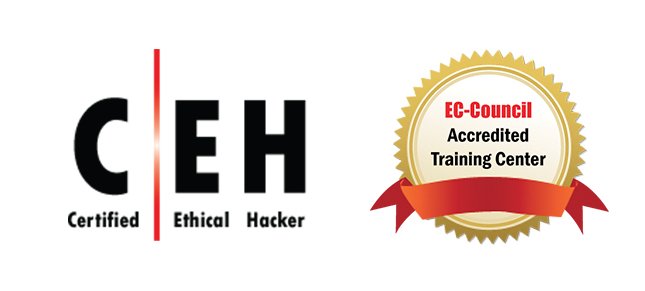
Join the Certified Ethical Hacker (CEH) v13 Training
Unical Academy, in collaboration with EC-Council, invites you to enhance your cybersecurity skills with the Certified Ethical Hacker (CEH) v13 course. This globally recognized certification program includes comprehensive training and an exam voucher, giving you the expertise to protect systems from cyber threats.
Take the next step in your career and become a certified ethical hacker
About the course
The CEH v13 is a specialized, one-of-a kind training program that helps you gain expertise in ethical hacking, AI, and machine learning. With hands-on training labs, knowledge-based and practical exams, a mock ethical hacking engagement on live networks, and a global hacking competition, this program ensures you master the most in-demand skills needed to excel and stand out in the cybersecurity industry.
The Certified Ethical Hacker (CEH) v13 continues to lead the way in cybersecurity by introducing cutting-edge hacking techniques and advanced tools used by both malicious hackers and security professionals today. This version provides extensive hands-on training while incorporating AI across all five critical phases of ethical hacking:
- Reconnaissance
- Vulnerability Scanning
- Gaining Access
- Maintaining Access
- Clearing Tracks
Why Should You Join the Certified Ethical Hacker Program?
CEH is a globally respected certification, making it a valuable credential to enhance your credibility in the cybersecurity field.
The program offers practical labs and real-world hacking scenarios, allowing you to gain experience in identifying and mitigating vulnerabilities in systems.
The average salary for Certified Ethical Hacker (CEH) with 1-4 years of experience varies from ₹592,789 per year to ₹678,436 per year - Payscale.com
Key Features

40-Hour Instructor-led Training

EC-Council Authorized Partner

98% Pass Rate

24x7 Post-Training Support

Median Salary of Cybersecurity Professionals

CEI Certified Trainers

Access to Recorded Sessions

Scenario-based Learning
Enquire Now
Upon completion of the Certified Ethical Hacker (CEH) course, students will be able to:
Understand Key Security Challenges: Identify and address major issues in information security, including hacking methodologies, frameworks, controls, and applicable laws and standards.
Conduct Reconnaissance (Footprinting): Use various footprinting techniques and tools to gather information about targets and implement effective countermeasures.
Perform Network Scanning: Apply different network scanning methods and understand the countermeasures to detect unauthorized access attempts.
Execute Enumeration: Utilize enumeration techniques to identify network resources, user names, and shared data, and implement strategies to counter these activities.
Assess Vulnerabilities: Conduct vulnerability assessments with industry tools to identify and mitigate security weaknesses.
Implement System Hacking Techniques: Understand system hacking methodology, including privilege escalation and rootkits, while learning to defend against these methods.
Analyze and Counteract Malware: Differentiate between types of malware (Trojan, virus, worms, etc.), including fileless malware, and perform malware analysis and countermeasures.
Apply Packet Sniffing Techniques: Recognize packet sniffing methods and use countermeasures to prevent data interception.
Mitigate Social Engineering Risks: Understand social engineering tactics, identity theft prevention, and implement relevant countermeasures.
Prevent DoS/DDoS Attacks: Identify DoS/DDoS techniques, botnets, and use tools and strategies to defend against these attacks.
Secure Network Sessions: Understand session hijacking methods and countermeasures to protect user sessions.
Bypass and Counter Firewalls and IDS/IPS Systems: Use evasion techniques and tools to understand firewall, IDS, IPS, honeypot, and endpoint defenses, and how to reinforce them.
Defend Against Web Application Attacks: Recognize web server, web application, and web API vulnerabilities and employ defensive strategies and countermeasures.
Mitigate SQL Injection Attacks: Understand SQL injection attack techniques, evasion strategies, and defensive practices.
Protect Wireless Networks: Explore wireless encryption, threats, hacking methods, and tools to safeguard Wi-Fi networks.
Address Mobile Security Risks: Analyze mobile platform attack vectors, hacking methods for Android and iOS, and utilize mobile security management tools.
Counter IoT and OT Threats: Identify IoT and OT attack vectors, hacking methods, and implement effective countermeasures.
Secure Cloud Environments: Examine cloud threats and perform cloud hacking techniques (AWS, Microsoft Azure, Google Cloud) while using security tools and best practices.
Apply Cryptography: Use cryptographic algorithms and tools to secure data, understand cryptography attacks, and employ cryptanalysis techniques.
Leverage AI in Ethical Hacking: Explore the role of AI in ethical hacking to enhance threat detection and response capabilities.
This course prepares students with hands-on experience in real-world hacking tools and techniques, ensuring they are equipped to secure systems against advanced cyber threats.
| Certification Name | C|EH v13 (MCQ Exam) | C|EH v13 (Practical Exam) |
|---|---|---|
| Exam Format | Multiple Choice Questions | iLabs Cyber Range |
| Number of Questions | 125 Questions | 20 Questions |
| Exam Duration | 240 Minutes | 360 Minutes |
| Passing Score | 60-80% | 70% |
| Exam Delivery | VUE / ECCEXAM | – |
The targeted audience for the Certified Ethical Hacker (CEH) v13 includes:
- Security Analysts
- Ethical Hackers
- System Administrators
- Network Administrators
- Network and Security Engineers
- Cyber Security Managers
- Information Security Auditors
- Security Professionals
